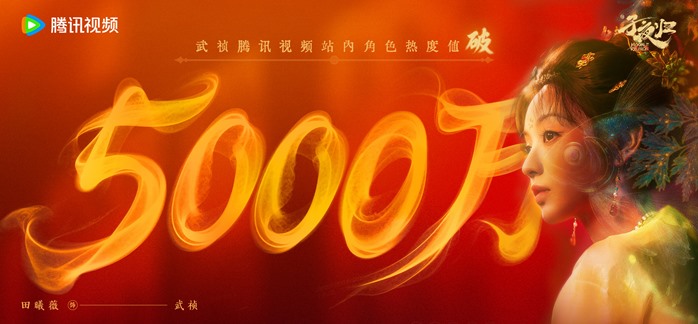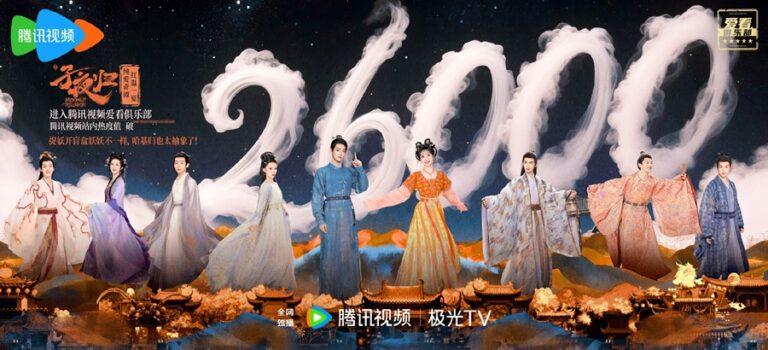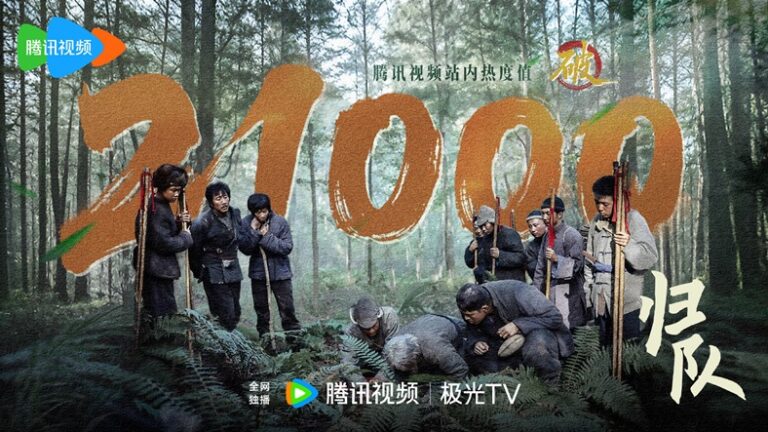How Chinese streaming giants like YOUKU and Tencent calculate their drama “Heat Index”
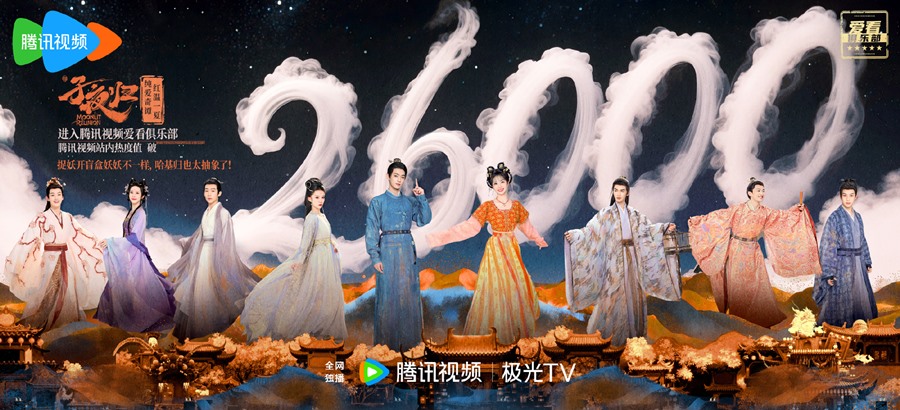
If you have ever browsed a Chinese streaming platform for a drama, you’ve undoubtedly encountered a prominent, ever-changing number called the “Heat Index” (热度指数 – rèdù zhǐshù) or “Content Heat” (内容热度 – nèiróng rèdù).
This figure, often in the thousands or even millions, serves as a real-time barometer of a show’s popularity and buzz.
Unlike a simple view count, the heat index is a sophisticated, multi-variable algorithm designed to measure genuine audience engagement. It is calculated differently by every Chinese platform.
While the exact formulas are proprietary trade secrets, through platform disclosures, industry publications, and a number of different ongoing patterns, we can usually figure out quite accurately the core components that create these numbers.
Here then is how the “Big Three”—iQIYI, Tencent Video, and YOUKU—calculate their coveted metrics.
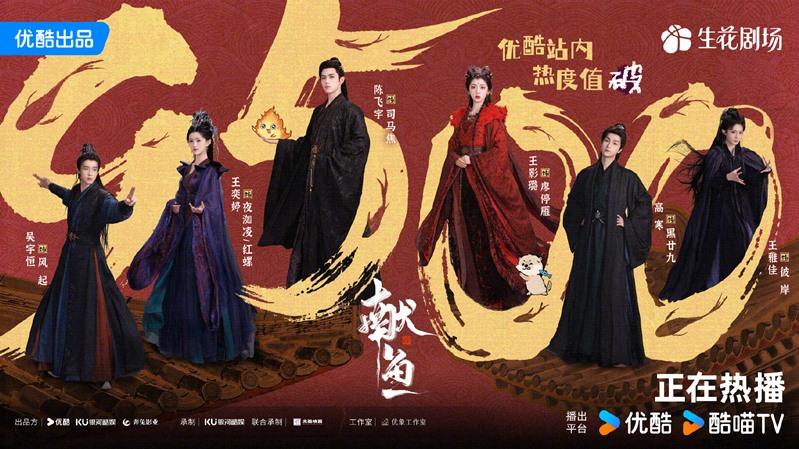
A C-drama’s views are only a small part of the equation
First, it’s crucial to understand that these are not raw viewership numbers.
This is because Chinese platforms stopped using click counters to calculate a drama’s popularity years ago due to problems with fans and production companies artificially inflating clicks, and even outright fraud.
Instead, the heat index is a weighted composite score designed to reflect a show’s true impact. The general components include:
1. Playback Volume (播放量 – bōfàng liàng): This is more than just a viewer hitting ‘Play’. It measures effective play time (e.g., watching for more than 30 seconds), unique viewers, and completion rates. Binge-watching episodes boosts this metric significantly.
2. User Engagement (用户互动 – yònghù hùdòng): This includes likes, comments, shares, bullet comments (弹幕 – dànmù), and adding the show to a watchlist. This measures how involved the community is with the drama.
3. Social Buzz (社交热度 – shèjiāo rèdù): Data from partner platforms like Weibo, Douyin, Zhihu, and RedNote is used to measure discussions, trending topics, and fan-created content related to the drama.
4. Paid User Behavior (会员行为 – huìyuán xíngwéi): Any actions from a paying subscriber (VIPs) have more value, as they are a streaming platform’s most important customers.
Now, let’s look at each platform’s unique way they calculate their own heat index.
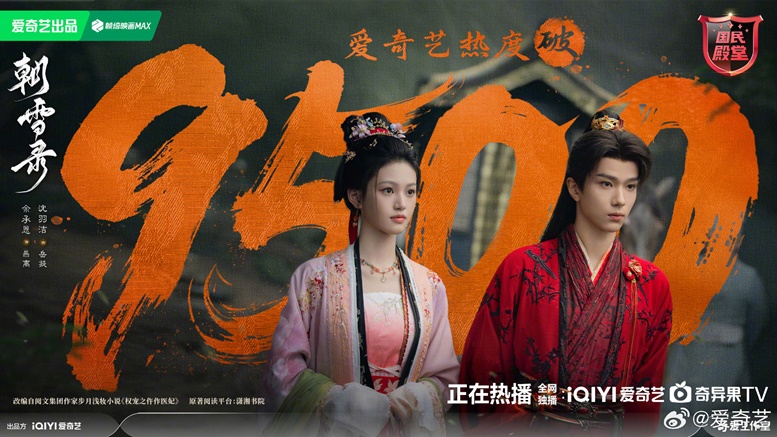
iQIYI: The Content Heat Index (内容热度值)
iQIYI was the first to pioneer this comprehensive model, launching its “Content Heat Index” in 2018 to replace its outdated view counter. Nowadays, it is widely considered the industry standard.
The Promise: iQIYI states that its index, which ranges from 0 to 10,000, reflects the “consumption volume, interaction volume, and sharing volume” of content in a holistic way.
How it’s Calculated:
The exact calculations are an iQIYI secret, but it appears to be a complex model that prioritizes actual engagement over just clicks.
Key Differentiators:
1. Emphasis on Time Watched — iQIYI heavily weights actual time spent watching the show, making it harder to inflate with bots that just click and close.
2. VIP Value — Actions taken by VIP members (such as watching, commenting, or liking) contribute more to the heat index than the same actions from non-paying users. This tells the platform what content is driving revenue.
3. Real-time Reflection — The index updates in near real-time, spiking during live broadcast times and reacting instantly to major plot twists discussed on social media.
On iQIYI, a heat value over 9,000 is considered to be a major hit (ie: The Coroner’s Diary), with only the top-tier dramas (e.g., The Knockout, Story of Yanxi Palace) breaking iQIYI’s 10,000 mark.

Tencent Video: The Heat Index (热度值)
Tencent Video’s metric is similarly named but is known for its famously high numbers, often reaching into the tens of thousands.
The Promise: Tencent describes its index as a measure of “the popularity of video content based on the number of video views and user interactions on the Tencent Video platform.”
How it’s Calculated:
The “WeChat/QQ” Multiplier: This is Tencent’s secret weapon. As part of the Tencent empire, its heat index algorithm is uniquely integrated with China’s two largest social platforms: WeChat and QQ.
When a user shares a drama clip or discussion to their WeChat Moments or QQ feed, that activity is captured and weighted extremely heavily in the heat index calculation.
This gives Tencent dramas a natural advantage in virality within its own ecosystem.
Platform-Specific Engagement: Likes, comments, and shares within the Tencent Video app are core components. The number of “barrage” comments (弹幕) for a specific C-drama is also a significant factor.
Viewership Metrics: Like iQIYI, Tencent measures effective play time and unique viewers rather than raw clicks.
Because of the social integration, Tencent’s numbers are inherently larger and not directly comparable to iQIYI’s scale.
A hit drama on Tencent (e.g., The Untamed or Nirvana in Fire), for instance, can easily surpass 30,000 points.
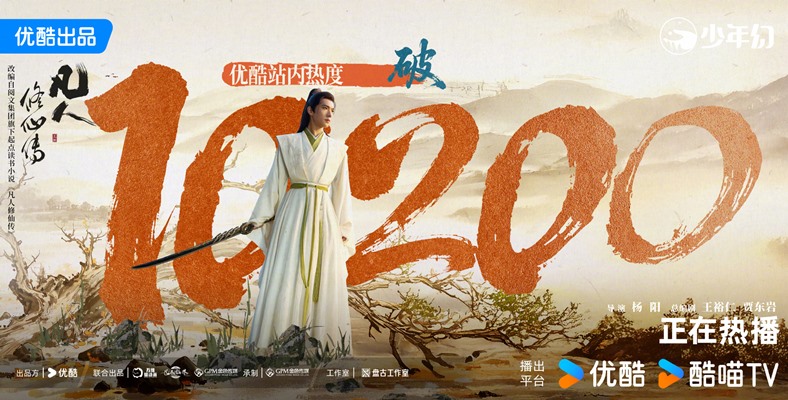
YOUKU: The Heat Index (热度值) & The Audience Index (指数)
Alibaba’s YOUKU has taken a slightly different approach, often promoting multiple metrics.
The Promise: YOUKU emphasizes a “full-link, full-scenario” data model that measures user behavior not just on its app, but across the Alibaba ecosystem.
How it’s Calculated:
The Alibaba Ecosystem Advantage: Similar to Tencent, YOUKU leverages its parent company’s vast resources. Its heat index incorporates data from Taobao and Tmall.
This is a game-changer. If millions of users are searching for the clothing, cosmetics, or books related to a drama airing on YOUKU, that commercial intent is factored into the heat index.
It connects cultural popularity directly with consumer behavior, proving just how popular a C-drama has become.
The “Audience Index” (指数): For some campaigns, YOUKU uses a normalized index on a scale of 100. A score of 100, therefore, means the show has reached the maximum level of popularity across all metrics within the YOUKU system.
This is perhaps the easiest score for viewers to understand at a glance.
Youku’s “Gravity” Model: The Chinese platform has discussed using a model that treats different types of engagement (play, comment, share) as having different “gravitational pulls” on the overall score, with some actions being far more influential than others.
Right now, however, a drama with a heat index of over 9000 on Youku (aka The Seven Relics of Ill Omen) is deemed to be very successful and, if it hits 10000, it’s a mega-hit (ie: The Immortal Ascension).
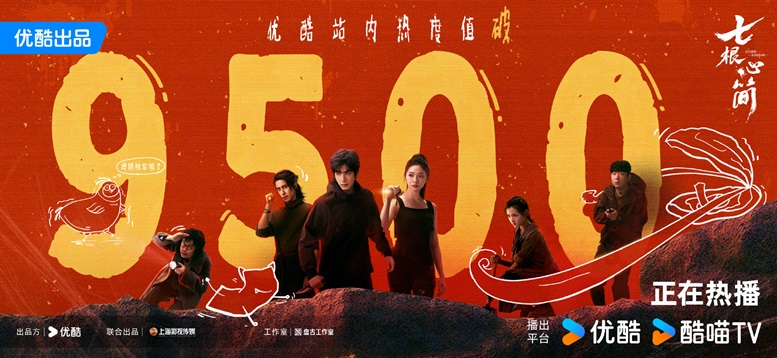
Why Does Heat Index of a Drama Matter?
For viewers, the heat index is a reliable guide to which C-dramas are trending and worth watching. For the industry, it’s everything:
1. Monetization: Advertisers and sponsors use these metrics to decide where to place their investments.
2. Content Strategy: Platforms use this data to decide which sequels to greenlight, which genres to invest in, and which actors are actually driving real engagement.
3. Anti-Fraud: The multi-dimensional nature of these indexes makes it exponentially harder to manipulate popularity through click farms, preserving a (mostly) authentic measure of success.
In conclusion, while the exact algorithms are black boxes, the philosophy is clear: the modern Chinese drama heat index is a sophisticated measure of true, multi-platform, revenue-driving engagement.
It’s not just about who clicked play—it’s about who stayed, who talked, who shared, and most importantly, who paid.


